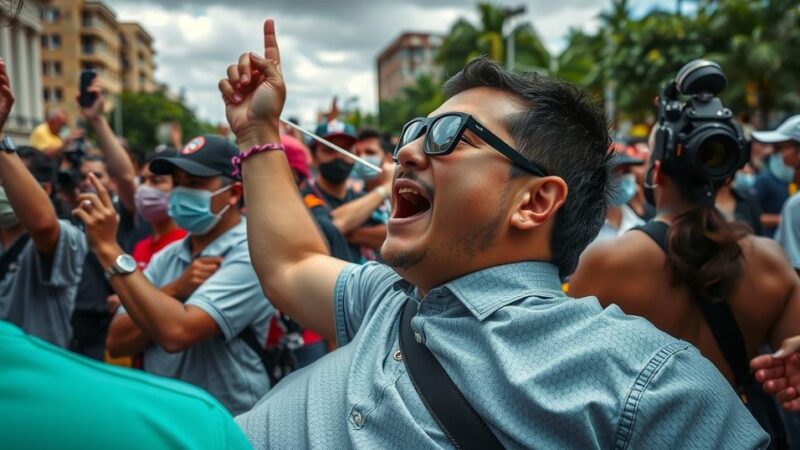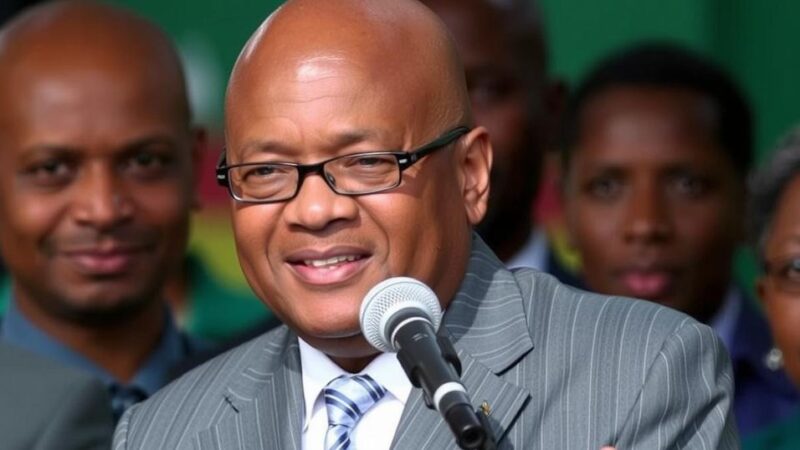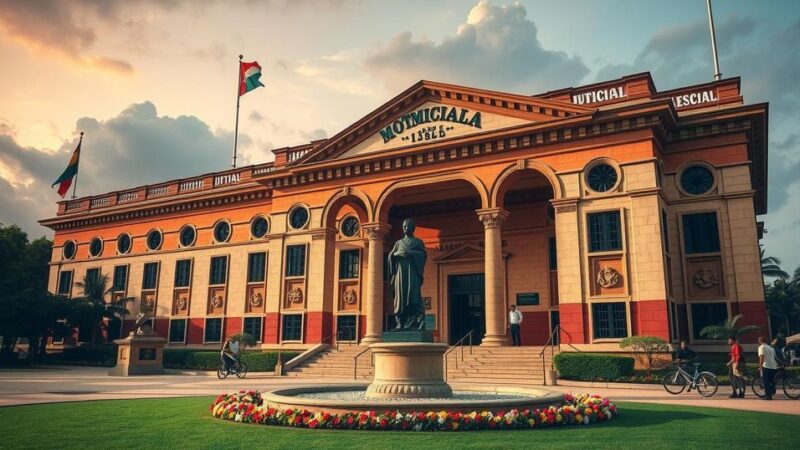President Kais Saied is expected to secure a landslide victory in Tunisia’s upcoming presidential election, amidst a backdrop of repression against political opponents and minimal electoral engagement from the populace. The current political environment starkly contrasts with the democratic aspirations citizens voiced during the Arab Spring a decade ago.
In Tunisia, President Kais Saied is poised for a decisive victory in the upcoming presidential election, set to take place on Sunday. The climate surrounding this election appears grim, with minimal campaigning, a lack of candidate representation, and no public debates. Saied’s confidence in his re-election is underscored by his failure to announce any specific policy proposals. Notably, his main opponent is currently incarcerated on dubious charges, which his legal team labels as fabricated, marking a troubling trend as several other potential candidates also find themselves imprisoned or facing restrictions that curtail their participation in the electoral process. The political atmosphere in Tunisia has notably soured, particularly after the wave of enthusiasm that characterized the Arab Spring movement over a decade ago, which aimed at establishing democratic governance. Nonetheless, many Tunisians are disillusioned with the state of their democracy, as evidenced by a harsh crackdown on dissent by Saied’s administration. Political analyst Souhaib Fercheche articulated this sentiment, stating that Saied is “willing to do anything it takes to stay in power — dividing Tunisians, prosecuting them, accusing them.” Ten years after the ousting of former dictator Zine El-Abidine Ben Ali, citizens who once heralded the promise of democratic governance remain skeptical about their political rights and freedoms. Most believe that the devastation of democracy has set in, characterized by Saied’s concentrated authority and increasing disregard for democratic principles.
The article revolves around the political landscape in Tunisia, particularly focusing on the upcoming presidential election in which President Kais Saied is positioned to emerge as the clear victor. This context is critical given the historical significance of Tunisia as the birthplace of the Arab Spring, a series of uprisings across the Arab world in 2011 that aimed to curtail autocratic rule and establish democratic governance. However, contrary to these original aspirations, the current political climate indicates a significant deviation from democratic practices, with critics of President Saied facing repression and legal challenges.
In conclusion, as Tunisia approaches its presidential election, the anticipated outcome favors President Kais Saied, who has effectively curtailed opposition and consolidated power. With many political contenders sidelined through imprisonment or disqualification, the prospects for a genuine democratic electoral process appear bleak. The hope that emerged from the Arab Spring has largely dissipated, leaving many Tunisians disillusioned with the political reality they now face under authoritarian rule.
Original Source: www.nytimes.com







